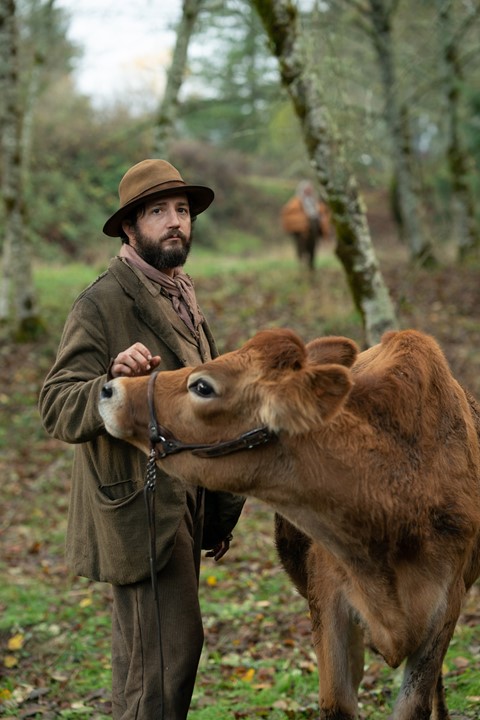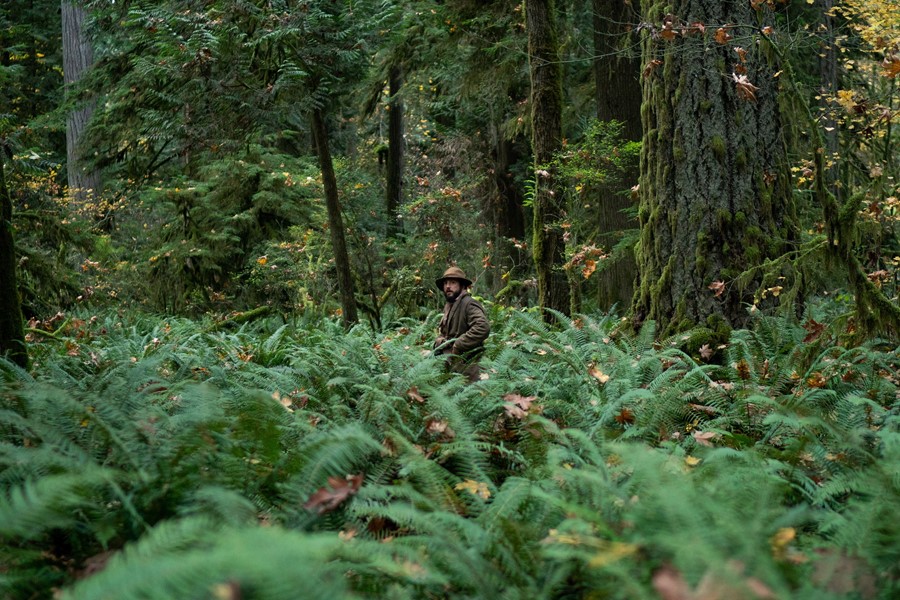American director Kelly Reichardt’s new feature, First Cow, is a new, different and compelling take on the Western film
Long before the United States had convenience stores, the arrival of a single cow to a trading post in Oregon provides a pair of outsiders with a potential lucky break. They figure if they can milk the creature on the down-low while its wealthy owner is sleeping, they’ll have the secret ingredient for darn good cookies – and an entrepreneurial coup, as they can sell them to the fur trappers for whom home comforts are scarce.
American director Kelly Reichardt and her frequent screenwriting collaborator Jonathan Raymond honed in on one section – set in the 1820s – of his centuries-spanning novel The Half-Life to forge the premise of her new feature, First Cow. Its intimate, pared-down focus suits a film that runs counter to the testosterone-fuelled visions of gun-slinging loners taming the wild frontier that typify the Western genre. It plumbs, instead, the yearning for companionship that persisted amid immigrant lives of hardscrabble survival, and the danger of aspirations for those who discover the American Dream of a land of opportunity may not be so accessible after all.
“It’s an American notion, supposedly, that if you’re a young entrepreneur and have the gumption, spirit and ideas you too can take part and climb the ladder,” said Reichardt to AnOther at the Berlin International Film Festival earlier this month, where the film had its international premiere. “But is that really so?”
First Cow sees Cookie Figowitz (John Magaro), a chef to a bullying band of beaver trappers, and King Lu (Orion Lee), a Chinese sailor on the run, bend the rules as their only chance at economic autonomy. But their cheeky circumvention of power and property comes at a risk to their very lives. “They’re in a new territory, and it’s interesting to me how quick it is for levels of hierarchy to form,” said Reichardt. “It’s the beginning of capitalism in this story. Even before there’s a currency, and people just traded based on what they needed, this hierarchy is established. Cookie’s on the low end because he’s poor, and King Lu is lower because he’s Chinese and poor.”

But it’s the First Nations people, who lived off the land long before new settlers arrived by ship, who will bear the ultimate brunt of the havoc that this new economy wreaks upon the ecosystem. This imminent devastation, sown by the unbridled colonial plunder of resources and the embrace of a reckless mindset of making one’s fortune at any cost, is a melancholy current throughout. “There was a wilful blindness that the beavers would be there forever,” Reichardt said. “But they were wiped out, and at the same time, so were all the First Nations people in the area.”
First Cow is not the first feature Reichardt has made in Oregon that confronts environmental issues, nor the first that could be called an “anti-Western”. Night Moves (2013) was a modern-day, character-driven thriller about radical activists who plot to blow up a dam. Meek’s Cutoff (2010) cast a critical eye on prevailing power dynamics in its story of a band of ill-prepared settlers who get into trouble along a desert route and take a First Nations man hostage for assistance, while the women are shut out of the decision-making. “The idea of the Western has gotten so mixed up in our history – the idea of the brave cowboy doing the heroic thing and killing the Indian,” said the director. “Using that frame, and trying to bring a different point of view, is interesting to me.”
Reichardt said she was making so many films in Oregon (“It’s an exciting place for me, landscape wise”) she has now relocated there, just spending the fall semester in New York to teach.
Its side-eyeing of a capitalism that only continues to tighten its claw around America’s most marginalised makes First Cow, despite its period trappings, feel very much of the moment. But it’s the achingly understated bond that takes hold and quietly grows between Cookie and King Lu, underpinned by beautiful performances from both Magaro and Lee, that is the film’s real beating heart. “We sent them out with a survivalist for some days to live in the rain, learn how to skin a squirrel and start a fire without matches, and that’s where they got to know each other,” said Reichardt.
She had been familiar with Magaro from a part he had in Carol, directed by her good friend Todd Haynes. “There is something really human and vulnerable about him, and I feel like it’s his essence that comes through,” she said. The right person to play King Lu took a much longer time to find. “When you get down to it, Asian actors have been really pigeonholed, so a lot of people we were looking at had really contemporary bodies for fighting scenes. To find one who was not pumped up was hard in and of itself,” she said. “I’m amazed that Orion is a little like King Lu: he’s got his hustle on, and he’s ready to take the world by storm.”
Alia Shawkat has a small role at the start as a modern-day woman who is walking her dog in the woods when she stumbles across a human cranium, and digs to find two skeletons, holding hands – an opening, before we catapult back into the past, that reminds us just how much the current US rests on the legacy of its forebearers. “Whatever you make comments on the now,” said Reichardt, “and all these questions I’m dealing with are really relevant forever.”
First Cow is in US cinemas now.
